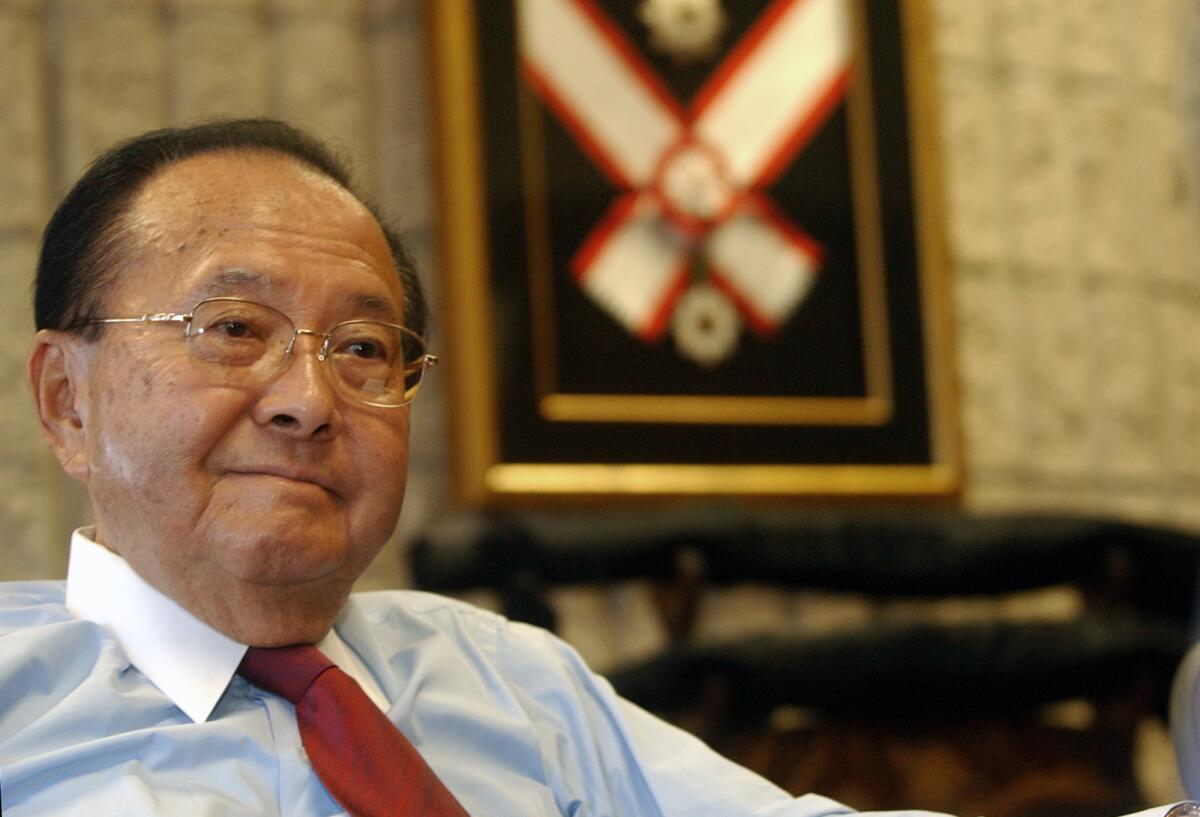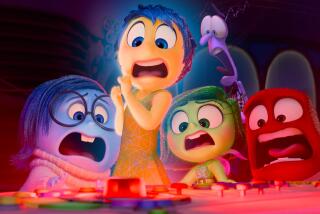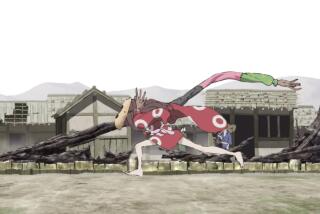Sen. Daniel Inouye dies at 88; war hero

When Daniel K. Inouye was 17, the Japanese attacked Pearl Harbor. An aspiring surgeon, he spent much of the next week helping care for the wounded at an elementary school in his native Honolulu.
He wanted to enlist immediately but couldn’t. Japanese Americans were classified as “enemy aliens.”
Two years later, once restrictions were lifted in 1943, he joined the Army’s 442nd Regimental Combat Team, whose motto was “Go for broke.”
PHOTOS: Sen. Daniel Inouye of Hawaii
The Japanese American soldiers became the most decorated unit in U.S. history. Inouye fought in Italy and France, losing his right arm during a 1945 battle against the Germans. He would ultimately be awarded the Medal of Honor, the highest citation for combat heroics.
Inouye returned hometo become a towering figure in Hawaii politics, joining the first delegation that the new state sent to Congress in 1959, then winning election to the Senate in 1962.
When he died Monday of respiratory complications at Walter Reed National Military Medical Center in Bethesda, Md., Inouye was the second-longest-serving senator in U.S. history. He was 88.
PHOTOS: Notable deaths of 2012
In the Senate, the Democrat was a low-key presence, and, as an amputee, a walking testament to the understated valor of his generation.
“Tonight, our country has lost a true American hero,” President Obama said in a statement. “In Washington, he worked to strengthen our military, forge bipartisan consensus, and hold those of us in government accountable to the people we were elected to serve.”
But, the president added, “it was his incredible bravery during World War II … that made Danny not just a colleague and a mentor, but someone revered by all of us lucky enough to know him.”
The country’s first Japanese American senator, Inouye was reelected eight times, most recently in 2010. He served nearly 50 years in the Senate, second only to West Virginia Sen. Robert C. Byrd, who was in his 51st year in the chamber when he died in 2010.
Inouye earned a reputation as a politician who could deliver money and projects to his home state, often through so-called earmarks. From 1998 to 2003, he steered $1.4 billion to military projects in Hawaii while serving as chairman of the defense appropriations subcommittee, according to the National Journal Almanac.
In 2009 he became chairman of the powerful Senate Appropriations Committee and continued directing money back home, boasting about his ability to secure spending for pet projects even after the controversial practice fell out of fashion.
“I’m the No. 1 earmarks guy in the U.S. Congress,” he told a group of Hawaii business leaders that year, according to the Honolulu Star-Bulletin.
He supported the military, but was skeptical of war. He voted against the Iraq war resolution in 2002, and was among the 12 Democrats who voted in 2006 to withdraw all combat troops from Iraq by July 2007.
On the national stage, he was also known for his service on the Senate Watergate Committee and later chaired the Senate committee that investigated the Iran-Contra scandal during the Reagan administration.
During the Watergate hearings, millions of network television viewers saw Inouye grill top White House aides, including H.R. Haldeman and John D. Ehrlichman.
At one point Inouye, believing a microphone was turned off, whispered, “What a liar!” about Ehrlichman.
The next week, Ehrlichman’s attorney, John J. Wilson, referred to Inouye as “that little Jap.” Inouye received thousands of telegrams and letters of support.
In the summer of 1987, Inouye rebuked Marine Lt. Col. Oliver North, a key figure in the Iran-Contra scandal, which involved the sale of embargoed weapons to Iran in order to divert the resulting profits to anti-communist rebels in Nicaragua.
“It was painful to all of us to sit here and listen to your testimony,” the senator said. “It was equally painful that you lied and misled for what you believed to be a good cause.”
“Everyone in the Senate not only admired Danny Inouye, but they trusted him,” Vice President Joe Biden said in a statement. “We all knew he would do the moral thing regardless of the consequences — whether it was passing judgment on a president during Watergate or on another president in the Iran-Contra hearings. And Danny always remembered where he came from — and how hard his family had to struggle.”
Daniel Ken Inouye was born in Honolulu on Sept. 7, 1924, the oldest of four children of Japanese immigrants. His father was a jewelry clerk and his mother a homemaker.
Following the 1941 attack on Pearl Harbor, about 110,000 Pacific Coast residents — but not those in Hawaii — were interned in detention camps. Inouye, who continued in a pre-med program at the University of Hawaii, waited impatiently until he could enlist.
“I was angered to realize that my government felt that I was disloyal and part of the enemy,” he told filmmaker Ken Burns for his 2007 PBS documentary, “The War.” “And I wanted to be able to demonstrate not only to my government but to my neighbors that I was a good American.”
As a sergeant with the Japanese American 442nd Regimental Combat Team, Inouye led an assault in Italy’s Po Valley against the Germans on April 21, 1945. He was shot in the stomach but kept creeping toward two machine gun nests, destroying both with grenades and rifle fire.
Then a German rifle grenade fired from 10 yards away shattered and severed his right arm.
“I looked at it, stunned and disbelieving. It dangled there by a few bloody shreds of tissue, my grenade still clenched in a fist that suddenly didn’t belong to me anymore,” Inouye and coauthor Lawrence Elliott wrote in his 1967 autobiography, “Journey to Washington.”
Inouye pried his own live grenade out of his right hand and threw it at the German gunman, who was killed by the explosion. He continued firing his gun until he was shot in the right leg and knocked down the hillside. Badly wounded, he ordered his men to keep attacking.
On May 27, 1947, Inouye was honorably discharged with the rank of captain and awarded the Distinguished Service Cross, to go with a Bronze Star, two Purple Hearts and 12 other citations. In 2000, President Clinton upgraded his cross and other medals won by Japanese Americans to the Medal of Honor, the military’s highest award.
Despite those tributes, the honor Inouye most often displayed was a pin denoting his receipt of the Good Conduct Medal as a teenage private.
“You don’t really earn a Purple Heart,” he recalled in 2010. “The enemy shoots you — you try to avoid it.” The Medal of Honor, he continued, “was temporary insanity. I look at the citation and I say, ‘No, I couldn’t have done that.’”
But “to behave yourself among men, older men, it takes special effort. And I did not want to dishonor my family.”
He returned to Hawaii, where he earned a bachelor’s in government and economics from the University of Hawaii in 1950. After receiving his law degree from George Washington University in 1952, he worked as a prosecutor for the city of Honolulu, and soon became active in politics.
His congressional achievements included working with fellow Hawaii Democratic U.S. Sen. Daniel Akaka to win passage of a congressional resolution, signed by Clinton in 1993, formally apologizing for the U.S. government’s role in the 1893 overthrow of the kingdom of Hawaii.
In 2006, Inouye’s wife of 57 years, the former Margaret Shinobu Awamura, died of cancer. Two years later he married Irene Hirano, president and founding chief executive officer of the Japanese American National Museum in Los Angeles.
Besides his wife, Inouye is survived by a son from his first marriage, Daniel Jr., who is a guitarist and lobbyist; a granddaughter and a stepdaughter.
When asked in recent days how he wanted to be remembered, Inouye said, according to his office: “I represented the people of Hawaii and this nation honestly and to the best of my ability. I think I did OK.”
More to Read
Sign up for Essential California
The most important California stories and recommendations in your inbox every morning.
You may occasionally receive promotional content from the Los Angeles Times.












